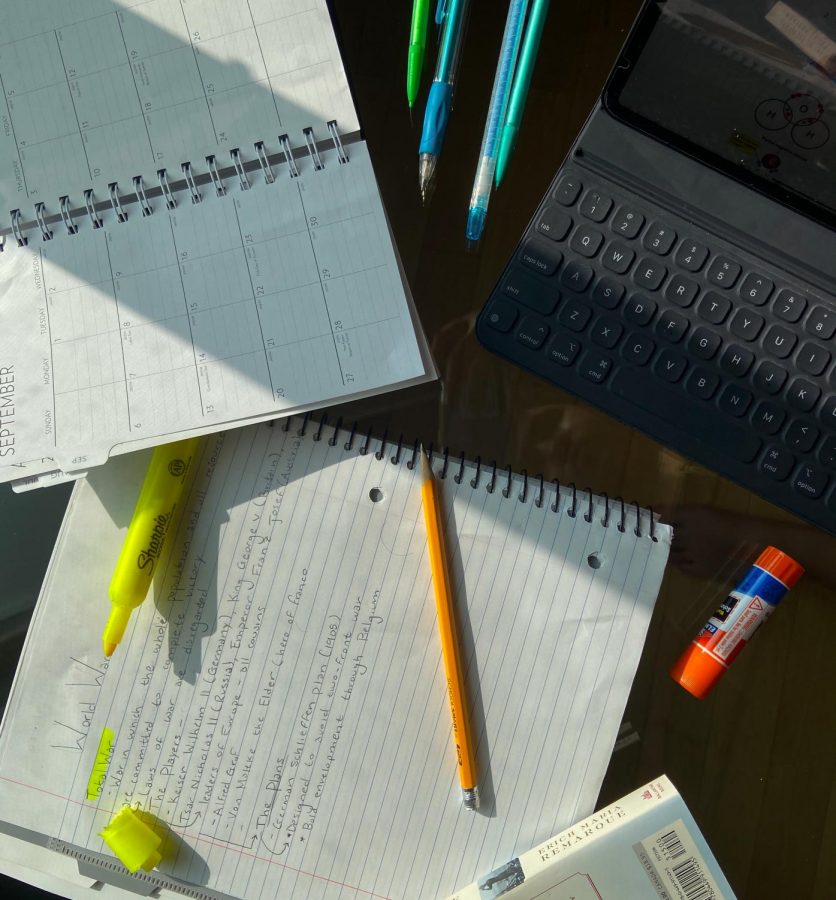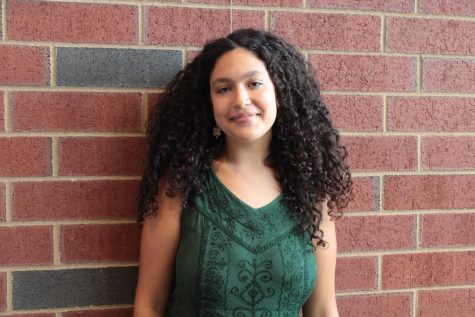Administrators, Make Learning Equitable
Pencils and highlighters are scattered across a notebook, planner, and desktop. A make-shift workspace for remote learning, Sept. 14, State College.
September 16, 2020
While the transition to remote learning has been a difficult one for many, it has been particularly challenging for neurodivergent students. Many people in our district rely on both academic and emotional support, but that support hasn’t always been attainable during online learning. The district’s focus and funds have been directed towards finding a way to go back to school, not finding a way to make online learning equitable. Students who require specific educational accommodations have been left in the dark.
Delta senior Sophia Galvin felt as though the district failed to consider the needs of marginalized community members. “They prioritized funding over their students’ lives. It is crucial that they take into account the needs of neurodivergent students and students of color.”
Galvin has ADHD, and it makes sitting and staring at a screen for prolonged periods of time extraordinarily difficult. But she felt unsafe in school hallways and was forced to sacrifice her education to maintain the health of her family.
“I learn best in a classroom setting and surrounded by people, but I have two parents in the medical field, and I live with an 80-year-old. Going to school in-person was far too dangerous,” Galvin said. While the district is providing resources and support to neurodivergent students who are still attending school, Galvin wishes that they would do the same for neurodivergent remote students.
A similar sentiment was offered by Delta senior Jenna Reed Panisiti.
“The same level of support hasn’t been offered to online and in-person students,” said Panisiti, who struggles with anxiety, panic disorder, and depression.
The format of remote learning has been stress-inducing for her, and having her camera on has led to panic attacks during class. “This is a difficult time for everyone; we have to be understanding and kind to each other,” Panasiti said. She believes that administrators are spending more time trying to make the school year “normal” when they should be prioritizing mental health. Remote learning is the safest option, but we must be conscious of the effect it has on students; flexibility and open mindedness are key.
Delta senior Tyler Ryland has been working to destigmatize Autism and shed light on the ableism that takes place in our community.
“At the end of last school year, my mental health began to deteriorate. Online learning made it difficult to connect with teachers. My emotional support teacher used to be down the hall if I needed to talk in the middle of class. Now I can’t access that support at any time, I have to schedule meetings and have enough motivation to reach out.” If Ryland could change one thing, he would hire more emotional and learning support teachers. “There are a lot of neurodivergent students in the district. Remote and in-person students need to be able to meet with (learning support) teachers regularly.”
Galvin, Panasiti, and Ryland all felt that remote school was necessary for the safety of the community, but that the district needed to do better for neurodivergent students.
“Take us into consideration when you make decisions. Ask your students individually what they need, don’t just tell them what they’re going to get,” Galvin said.
Ryland stressed that the district needs to give students space to speak. “They often only ask the parents of neurodivergent kids what they need, but the voice they should be prioritizing is the student’s.”
It appears as though we will be fully remote for the foreseeable future, so the needs of neurodivergent students need to be taken seriously. Putting all of our energy into reopening is counterproductive (as we’ll inevitably close again). Right now, our funds and resources need to be directed towards improving remote learning for everyone.



Lisa • Sep 19, 2020 at 5:50 AM
Miranda, as a high school ESL teacher, I am cheering you on! I have an IEP meeting for one of my students on Monday and am going to share your piece. The administration hasn’t taken this kid’s needs into account and even suggested that he just start classes when we return to the classroom. His mom is working from 6am-4pm and can’t oversee him, but is concerned that he’ll fall behind academically, but also that he’ll spiral emotionally as he becomes more and more disconnected from the community. And he will if there isn’t some sort of intervention soon. Again. Thank you for this really important piece.